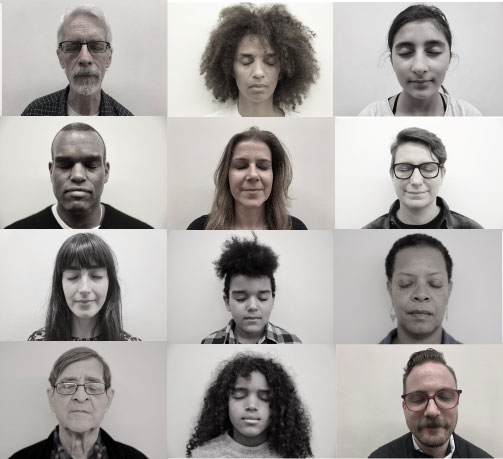Understanding Meditation
KMC NYC offers a monthly class, Learn the Fundamentals of Buddhist Meditation in half a day, which is designed to introduce basic Buddhist views and also assist with setting up and maintaining a consistent, enjoyable and effective meditation practice. Our General Program (GP) Classes offered at our main center and our branch locations are also a great way to begin a meditation practice. These classes consist of a Dharma talk, a guided meditation, and Q&A, and they'll help you create foundation for a regular and powerful practice. When you're ready to commit to a practice, you're welcome to join us at any of these classes.
Now a little about what is meditation and why we meditate...
Why meditate?
“Je Tsongkhapa asked the question, ‘what is the most important thing to do at the beginning of a meditation session?’ The Panchen Lama replied that we should begin by examining our mind. Sometimes the mere act of examining the mind, if done conscientiously, will pacify our distractions. At the beginning our mind is very much oriented towards external phenomena and we are preoccupied with worldly affairs, but by bringing our attention inwards to examine the mind it is possible that these conceptual distractions will cease.”

Moving beyond the basics
But meditation is not simply enjoying a quieted mind. As helpful as that is, the benefits of meditation go much deeper.
Once we have become familiar with quieting our mind, we are ready to practice contemplative meditation, which uses this single-pointed focus to absorb into what is called “an object of meditation”.
Essentially, an object of meditation is a state of mind we associate with a good feeling (for example, love, generosity, or compassion), resulting in a special insight or positive experience in our heart.
Once we have “found” our meditation object, we cease our contemplation and allow ourselves to move deeply into the insight or the experience itself. This is called placement meditation.
All of the classes at KMC NYC, as well as the books and audio products in our bookstore, are wonderful sources to help you become familiar with these states of mind.
A regular practice
As with any skill we’d like to perfect, the more consistently we practice it, the better at it we will become.
Ideally, then, it's good to meditate on a daily basis. Most people find that meditating first thing in the morning is the best way to accomplish this. Our minds are generally quieter in the morning and our ability to move into that centered and still experience is much stronger. If you can find even five to ten minutes initially to commit to your daily meditation practice, you will soon enjoy great results.
However, be assured that there is nothing “magic” about meditating in the morning, and if your lifestyle is such that a different part of the day is better for you, by all means meditate when it’s convenient. Don't fight with your meditation practice! The more we see it as a lucky opportunity to feel better and not another obligation we’ve added to the list, the more likely we are to happily make it a regular part of our life.
Also, make sure you are very comfortable during your meditations. For example, you do not have to sit on a cushion in order to have a “qualified” meditation session. If cushions don’t work for you, a chair is fine. Meditate each day in the same location if you can (your bedroom, your living room, etc.). Designating a specific place for your meditation helps you move more swiftly into the meditative experience once you have closed your eyes and begun to focus your attention on your breathing.
There’s plenty more than can be said about meditation and setting up a practice. But guess what? You don’t need to wait until you’ve heard all those details in order to get started. You’re ready to go. Please enjoy.
